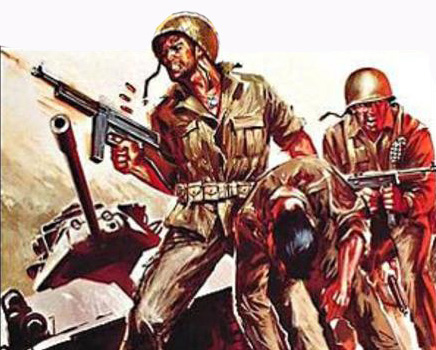
“The idea quickly took root that the battle was an archetypically British success.”
By Alan Forrest
OF THE NATIONS whose soldiers fought at Waterloo only Britain sought to transform the battle into an iconic event. Almost from the moment news of the clash reached England, it was identified with British grit and military character. Yet for the others, even those on the Allied side (Holland, Prussia and Hanover), the importance attached to Waterloo was never as great.
For many on the continent, the Napoleonic Wars had ended the previous year with the siege of Paris and the French Emperor’s first abdication. Diplomats were already at work in Vienna mapping out the post-war world when Bonaparte escaped from exile on Elba. Napoleon’s One-Hundred Day Campaign provided no more than a codicil to a quarter-century of conflict.
The Dutch tended to see the battle not so much as a reflection of the martial qualities of their nation, but as a dynastic triumph for the House of Orange.
In Prussia, which contributed so many soldiers to the Allied cause, Waterloo never acquired the celebrity of the Battle of the Nations at Leipzig two years earlier, which coincided with an upsurge of German nationalism.
And in France, whose army was routed at Waterloo, the battle became the very epitome of the ‘glorious defeat’, which – in a romantic age brought up on works like Goethe’s Sorrows of the Young Werther – helped to consolidate, rather than detract from, Napoleon’s legend.

But the reaction to the battle in Britain was very different. The public rejoicing that greeted news of the victory was unrestrained. This was in part because Napoleon’s defeat meant that the war was finally over, but also Waterloo was seen as that comparatively rare event: a decisive triumph for British arms on land rather than at sea.
The idea quickly took root that the battle was an archetypically British success; one based on the United Kingdom’s defensive strengths, with Arthur Wellesley, The Duke of Wellington cast as the military genius who had outwitted Napoleon.
The Waterloo Despatch was seen as tangible proof of Wellington’s triumph. In the years that followed, streets, squares and bridges throughout the nation were named for the battle; Waterloo churches were built to take Christianity to the new industrial towns and suburbs; and artists and writers rushed to record the victory for posterity. Public subscriptions were opened to erect statues and memorials in cities across Britain and the empire. A grateful nation even bought the Wellington a country estate at Stratford Saye in Hampshire. Medals were awarded to every soldier who had fought at Waterloo (an honour unprecedented in British military history).
In short, the battle became part of Britain’s imperial identity. More fuss was made of it than of any other modern clash of arms – though it is of course arguable that the United Kingdom continued to place its real trust in the Royal Navy and that Lord Nelson, not Wellington, was the nation’s real hero of the 20-year war with France.
Even the so-called Iron Duke’s subsequent political career made him more of a contested figure, especially the North, where his aloof style and dyed-in-the-wool conservatism won him few converts. But the Battle of Waterloo continued to be hailed as the struggle that helped establish Britain as the undisputed world power of the 19th century.
Alan Forrest is the author of the new book Waterloo from Oxford University Press (click on the image to buy). He is a professor emeritus of history at the University of York and has published books on the French Revolution and Napoleonic Wars. His previous book was Napoleon: Life, Legacy, and Image: A Biography.











Disappointing to see a Professor Emeritus of History write such a sloppy article … interchanging the terms Britain / England & British / English … as if they were the same. Wasn’t true in in 1815, isn’t true in 2015.
Sorry, John, but I’m sure you realize that ‘England’ can often be used as a stand-in for the word “Britain” to avoid repetition (so long as it’s done with care). Most readers understand the nuance and are accommodating.
Stunning considering that without Blucher and his Prussians, Wellington was yet another overrated British general…But of course, the British “Won” WW1 and WW2…these are the same geniuses that got there “arses” handed to them by Francis Marion In South Carolina ..hahahaha…the Germans were right about the English being Lions led by Donkeys….rubbish
A British victory? Let me laugh; without the Prussians the “British” will be crushed by Napoleon and many troops under British command were German, it is a German victory.
Go back and read the story. It’s about how countries *perceived* the battle after it was over.